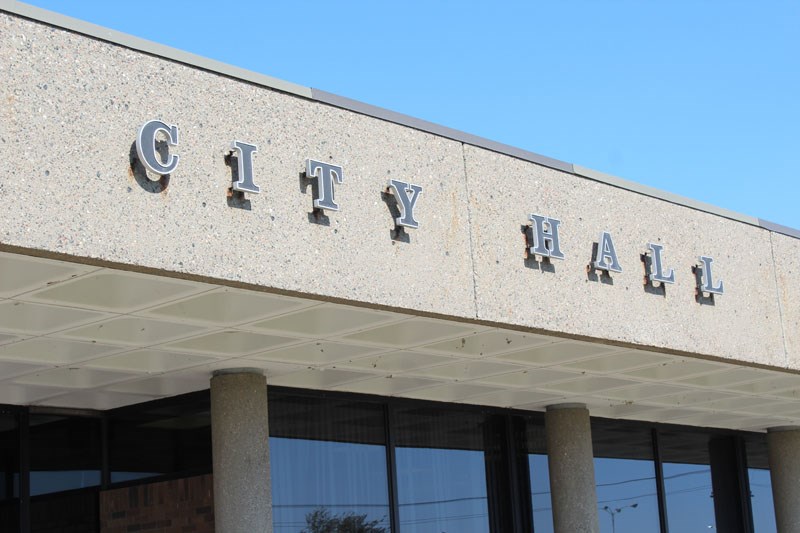With Manitoba’s government seeking to rein in expenses to help reduce a deficit that could grow to as much as $5 billion this year, the City of Thompson is developing its own budget knowing that extra provincial funding is going to be hard to come by.
The municipal operating grant provided to Thompson by the province remains at $1,707,582.87 cents, the same as it has been every year since 2016 when the Progressive Conservative government froze funding levels. The city’s projected budget, funded mostly by residential and commercial property taxes and a business tax, grew to $34.8 million in 2019 from $31.5 million the previous year, though actual spending from the 2018 budget amounted to less than $29 million. In 2016, the budget was about $30.4 million.
The provincial government recently asked non-core departments and other entities it funds, like Communities Economic Development Fund (CEDF) and universities and colleges, to submit plans detailing how they could cut 10, 20 or 30 per cent from their budgets, while Premier Brian Pallister has spoken publicly about possibly encouraging civil service employees to accept reduced work weeks in order to avoid layoffs.
At the April 20 finance and administration committee meeting, members discussed a letter, sent to municipalities by Municipal Relations Minister Rochelle Squires in mid-April, detailing some of the provincial government’s moves to shift resources from lower-priority ares into health care, including steps to reduce front-line workforce costs, which represent about half of Manitoba’s budget.
“We also recognize that municipalities are similarly experiencing reduced revenue from property taxes, leases, fees for service and fines, and that you must also shift resources towards essential services including fire protection, emergency management and waste management,” wrote Squires. “For all of us, these times require that we reassess our financial plans and budgets and focus on essential priorities so that we come out of this pandemic with a recovered economy and sustainable finances. I am strongly urging you to look to examples being set and continue to deliver the best value for money for your ratepayers by taking new measures to manage your budgets.”
“They’re basically telling us what they’re doing,” said City manager Anthony McInnis April 20. “They’re basically asking for all municipalities to consider doing the same and it’s basically to adjust our expenses and our workforces to assist with the financial challenges that all the municipalities across the province are facing right now. At the end of the day, it’s a local decision of council. Administration’s working on scenarios so we do have scenarios prepared. They’re ready for any sort of discussion that council would like to have”
About half of Thompson’s budget is accounted for by salaries, with another 15 per cent or so going to pay policing costs.
Deputy mayor Les Ellsworth, who chairs the finance and administration committee, said he didn’t believe austerity measures are the right move with the economy already badly hurt by the COVID-19 pandemic.
“We shouldn’t have the government telling us what to do in regards to our employees,” Ellsworth said. “If our workers are there and they’re essential workers and work needs to get done then I believe we need to stimulate the economy, not try to shut it down to the point where it’s going to costs us a lot more in the end.”
Manitoba NDP Municipal Relations critic Matt Wiebe said in an April 28 press release that the province should be granting municipal governments, which are required to balance their budgets, greater flexibility by allowing them to run deficits this year, rather than forcing them to make spending cuts if their anticipated revenues are lower, and perhaps avoid layoffs as a result.
"Municipalities need more support to ensure our services and the front line workers that deliver them are protected during the pandemic,” said Wiebe. “Manitoba municipalities need an end to the years-long funding freeze and need more flexible rules around borrowing and reserves to meet today’s challenges.”
At the April 13 council meeting, former councillor Ron Matechuk asked about council’s plans for the business tax.
“Is the City of Thompson prepared to be part of the local solution by eliminating this burden on local business from this tax?” he inquired.
“Currently administration is working up scenarios for the council and there’s a budget meeting later this week,” McInnis replied. “In that is reviews of changes to business tax, changes or deferrals to the utilities and water payments, changes to tax payments and education credit payments. These are all being worked up for council’s consideration. They’ll give administration the marching orders for that.”



